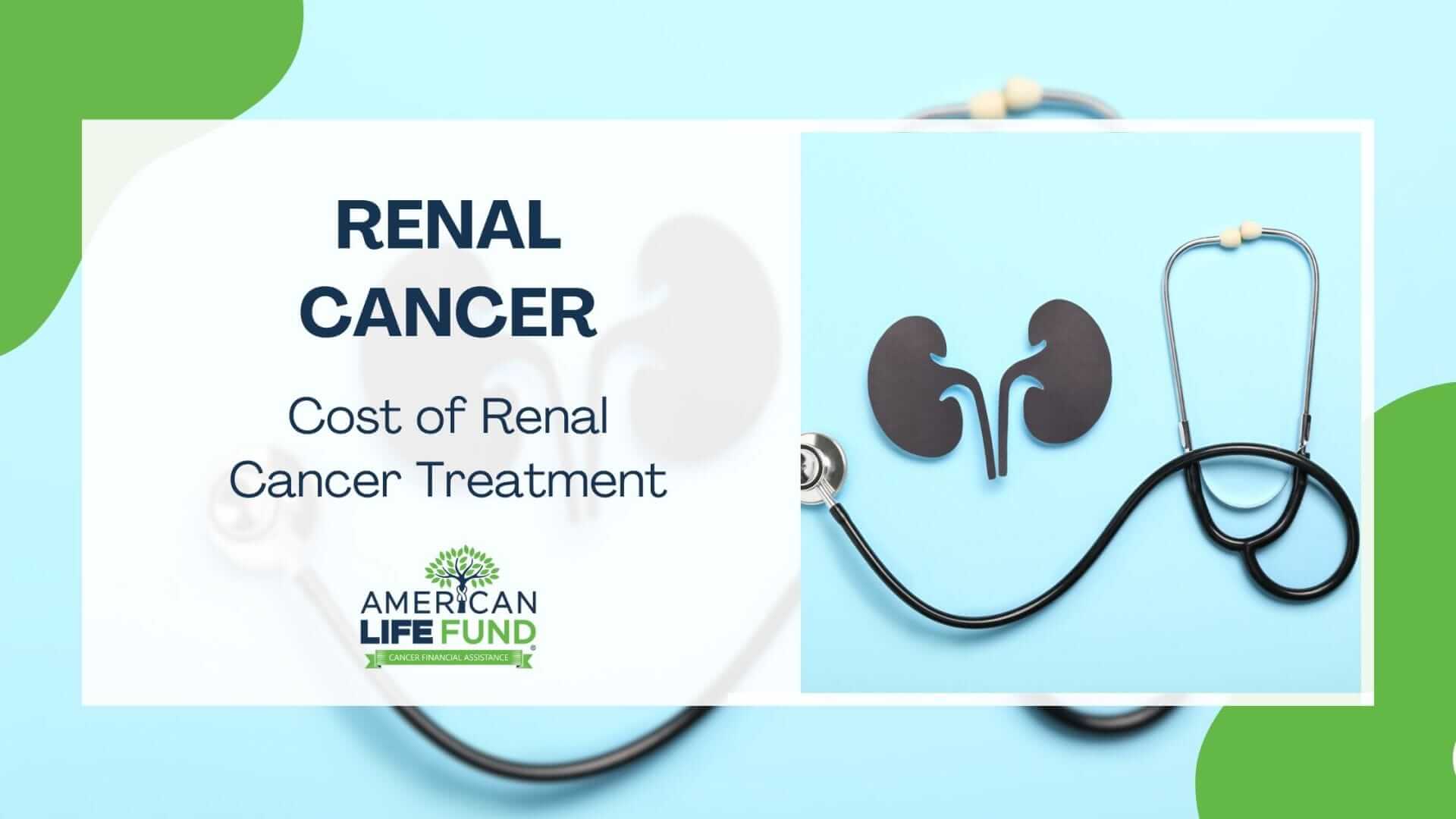Dealing with renal cancer not only involves medical treatments but also understanding and managing the costs associated with care. This article explains how kidney cancer treatment costs can vary greatly depending on the stage of the disease and the type of treatments required.
For example, early stages may be less expensive to treat, but as the disease progresses, more complex and costly treatments like chemotherapy, radiation, or surgery may be needed.
It’s important for patients and their families to understand these costs to plan and make informed decisions properly. Key strategies include communicating clearly with healthcare providers to understand treatment options and costs, reviewing insurance benefits to maximize coverage, and exploring ways to save on costs, such as opting for generic drugs.
By being proactive about managing these financial aspects, patients can focus more on healing and less on the financial burden of their treatment.
Key Takeaways
- Treatment Cost Variability: The average cost of treating renal cancer exhibits significant variability, influenced by factors such as disease stage and the specific type of treatment prescribed.
- Personalized Financial Considerations: Recognizing that renal cancer treatment costs are not uniform, the financial aspect necessitates an individualized approach, taking into account the unique circumstances of each patient.
- Effective Communication is Key: Transparent and accurate communication with healthcare providers is fundamental in understanding and managing renal cancer treatment costs and fostering informed decision-making.
- Leveraging Insurance Benefits: Understanding the scope of health insurance benefits is crucial, covering services from surgeries and chemotherapy to diagnostic tests; however, variations in coverage emphasize the need for a thorough policy review.
- Cost-Effective Alternatives: Exploring cost effectiveness, including using generic drugs and leveraging prescription drug discounts through various programs and organizations, proves essential without compromising quality care.
- Comprehensive Financial Planning: Managing renal cancer treatment costs requires a holistic approach, encompassing effective communication, insurance understanding, and strategic exploration of cost-saving measures, allowing patients to focus on their health amid financial considerations.
Understanding the Cost of Renal Cancer Treatment
Receiving a diagnosis of renal cancer is an emotionally taxing experience that not only impacts the well-being of patients but also introduces financial concerns for both individuals and their families. Recognizing the importance of making well-informed decisions about healthcare, a comprehensive understanding of the costs associated with renal cancer treatment becomes imperative.
In this examination, we unravel the complexities related to the costs of treating renal cancer. We explore various facets, such as disease stages, diverse treatment modalities, nuances of insurance coverage, direct and indirect expenses, and available options for financial assistance. Additionally, practical tips are provided to facilitate effective cost management during the course of renal cancer treatment.
Renal cancer treatment costs encapsulate a spectrum of crucial elements comprising:
- Surgery
- Radiation
- Chemotherapy
- Medications
- Doctor visits
- Tests
These components collectively contribute to the financial landscape of renal cancer treatment. Notably, the cost of renal cancer screening, an integral diagnostic aspect, spans from $151 to $751. As of 2020, the average cost associated with treating renal cancer is between $20,000 and $100,000, with the specific type and duration of treatment serving as pivotal factors influencing the overall expense.
Patients grappling with an advanced stage of renal cancer may find themselves facing substantial financial challenges. This underscores the critical need for individuals to comprehend the intricacies of the costs in their treatment journey, fostering informed decision-making and financial preparedness.
Stages of Renal Cancer and Their Impact on Costs
The stages of renal cancer wield a significant influence on the associated treatment costs. The National Cancer Institute indicates that the cost spectrum for treating early-stage renal cancer spans from $20,000 to $100,000, underlining the considerable financial variability inherent to different disease stages.
The average costs allocated to each stage of renal cancer paint a more detailed picture:
- Stage 0: $48,477 (6 months after diagnosis)
- Stages 1 and 2: $82,121
- Stage 3: $129,387
- Stage 4: $134,682
These figures encompass essential procedures, treatments, and medications pertinent to each stage, spotlighting the financial implications of proactive early intervention. Notably, the costs underscore the potential cost-effectiveness of addressing renal cancer at its earliest detectable stages.
Types of Treatments and Their Costs
Renal cancer necessitates a nuanced approach to treatment involving various therapeutic modalities. Key treatments encompass:
- Renal cancer surgery
- Radiation therapy
- Targeted therapies
- Immunotherapy
- Chemotherapy
Understanding the financial facets of these treatments is vital, considering the potential cost variations. In the United States, chemotherapy expenses can range significantly from $1,000 to $12,000 monthly. Concurrently, radiation therapy carries an average monthly cost of $9,000. At the same time, immunotherapy typically incurs expenses ranging from $10,000 to $12,500 per month.
Patients must factor in these treatment costs within the context of their circumstances, insurance coverage specifics, and healthcare provider considerations. This comprehensive approach ensures that patients can make well-informed decisions about their renal cancer treatment, considering medical and financial aspects.
Insurance Coverage and Its Role in Treatment Costs
In renal cancer treatment, health insurance emerges as a pivotal player, instrumental in mitigating the financial impact by curbing out-of-pocket expenses. Diverse insurance plans present varying degrees of coverage, underscoring the importance of comprehending these benefits for informed decision-making.
Understanding health insurance benefits is a cornerstone in the strategic management of treatment costs associated with kidney cancer, particularly in cases of advanced renal cell carcinoma and renal cell carcinoma. This serves as a proactive measure, assuring that a significant portion of medical expenses, from surgeries to targeted therapies, falls within the ambit of coverage. The result is a tangible reduction in out-of-pocket payments, offering patients financial relief amidst the challenges of renal cancer treatment.
Direct and Indirect Expenses in Renal Cancer Treatment
A dual consideration of direct and indirect expenses is imperative to assess the financial implications of a renal cancer diagnosis comprehensively. Direct expenses encapsulate the medical costs of diagnosis, treatment modalities, and essential follow-up care. On the other hand, indirect expenses encompass a broader spectrum, spanning lost wages, transportation costs, childcare or eldercare, home modifications, complementary therapies, and the indispensable element of emotional support.
Direct Medical Costs
Direct medical costs associated with renal cancer treatment are extensive, covering treatments, medications, and hospital stays. The average range for direct medical expenses specific to renal cancer treatment spans from $5,819 to $134,682, contingent upon variables like disease stage and the extent of insurance coverage.
Indirect Expenses
Indirect expenses for individuals undergoing renal cancer treatment include:
- Lost wages
- Transportation costs
- Childcare or eldercare
- Home modifications
- Complementary therapies
- Emotional support
For renal cancer patients, the post-treatment care and ongoing therapeutic interventions carry an estimated average cost of $85,772 in the initial year post-diagnosis. Considering these expenses is prudent and indispensable for effective financial planning amidst the complexities of renal cancer treatment.
Financial Assistance Options for Renal Cancer Patients
Navigating the financial challenges associated with renal cancer treatment can be overwhelming. However, numerous avenues exist to provide crucial financial assistance for patients. These options encompass government programs, nonprofit organizations, and participation in clinical trials, offering relief to alleviate the economic burden.
Government Programs
Government initiatives such as Medicaid and the CDC’s National Cancer Early Detection Program are pivotal in granting low-income individuals access to vital screening and treatment services. Eligibility criteria, which may vary by state, underscore the necessity of consulting the state’s Medicaid program for precise guidelines.
Nonprofit Organizations and Advocacy Groups
Nonprofit organizations, including The Kidney Foundation and Cancer Support Community, extend financial support to renal cancer patients. These organizations aim to address essential needs through resources such as grants and financial assistance and mitigate financial strain during treatment. Detailed eligibility requirements are accessible on the respective websites of these organizations.
Clinical Trials
Participation in clinical trials for renal cancer treatment presents an opportunity for patients to access innovative therapies at reduced or no cost. Eligibility criteria include age, cancer stage, previous treatments, overall health, specific genetic mutations, and informed consent. Clinical trials contribute to advancing treatment methodologies and may provide financial relief to participants.
Tips for Managing Renal Cancer Treatment Costs
Efficient management of renal cancer treatment costs involves:
- Effective Communication with Healthcare Providers: Clear communication about cost details tailored to your understanding, keeping records of conversations, and inquiring about payment plans or financial aid.
- Understanding Health Insurance Benefits: A thorough review of health insurance policies, understanding coverage limitations, and identifying ways to lower out-of-pocket costs.
- Exploring Generic Drugs and Discounts: Consider cost-effective options like generic drugs, access prescription drug discounts through programs and organizations, and explore various resources for medication coupons.
Communicating with Healthcare Providers
Effective communication with healthcare providers is essential in navigating renal cancer treatment costs. Consider the following strategies:
- Seek Transparent Cost Details: Request accurate and transparent details about the costs associated with renal cancer treatment. This information is crucial for making informed decisions and planning for financial aspects.
- Tailor Communication to Your Understanding: Ensure that discussions about treatment costs are tailored to your health numeracy level. This ensures that you comprehend the information provided, allowing for better decision-making.
- Keep a Record of Conversations: Maintain a record of all conversations related to treatment costs. This documentation can serve as a reference point and aid in addressing any discrepancies or uncertainties that may arise during treatment.
- Inquire about Payment Plans or Financial Aid: Actively inquire about available payment plans or financial aid options. Many healthcare providers offer assistance programs to help alleviate the financial burden on patients. Understanding these options can contribute to more manageable financial planning.
By incorporating these communication strategies, patients can foster a clear understanding of renal cancer treatment costs and proactively address financial considerations.
Understanding Health Insurance Benefits
Empowering patients to make informed choices and understanding health insurance benefits is crucial. Health insurance typically covers various aspects of renal cancer treatment, including:
- Surgeries
- Chemotherapy
- Radiation therapy
- Medications
- Other necessary medical services, such as diagnostic tests and follow-up care
However, the extent of coverage may vary based on the specific insurance plan. To lower out-of-pocket costs for renal cancer treatment, patients should engage in:
- Thorough Insurance Policy Review: Conduct a comprehensive review of your insurance policy. Understand the terms, limitations, and coverage details to make informed decisions about healthcare expenses.
- Understanding Coverage Limitations: Be aware of any limitations within your insurance coverage. Knowing what is covered and what may require additional expenses helps plan for potential costs.
By actively participating in the review and understanding of health insurance benefits, patients can better navigate the financial aspects of renal cancer treatment.
Exploring Generic Drugs and Discounts
Considering cost-effective alternatives, exploring generic drugs and discounts is crucial. Generic drugs offer advantages such as cost-effectiveness, compliance with medication, equivalent efficacy, and potential savings. Patients can access health drug benefits and prescription drug discounts through programs and organizations such as:
- The PAN Foundation
- Susan G. Komen’s breast care helpline
- The Partnership for Prescription Assistance
- NeedyMeds
Trusted sources for finding medication coupons or discounts include:
- Prescription assistance programs listed on the American Cancer Society website
- Hospital or treatment center funding
- Pharmacist recommendations
- Websites like Verzenio.com
By exploring these options, patients can potentially reduce the financial burden of renal cancer treatment.
Viatical Settlements: A Financial Resource for Renal Cancer Patients
Renal cancer patients and their families often encounter financial challenges during their treatment journey. Viatical settlements, like those provided by American Life Fund, offer an alternative financial solution worth considering.
Understanding Viatical Settlements
A viatical settlement involves the sale of a life insurance policy to a third party for a lump sum payment. This option is usually considered by individuals with life-threatening illnesses, such as renal cancer, who need immediate access to funds for medical expenses or other financial obligations.
American Life Fund’s Role
American Life Fund specializes in viatical settlements, offering support to individuals with serious illnesses, including renal cancer. Choosing a viatical settlement enables patients to receive a lump sum from their life insurance, easing financial pressures without waiting for traditional life insurance payouts.
Benefits for Renal Cancer Patients
- Immediate Financial Support: Viatical settlements provide quick access to funds, crucial during the demanding times of cancer treatment.
- Versatile Use of Funds: The received lump sum can cover various needs, from medical bills to alternative treatments or enhancing quality of life.
- No Repayment Required: Viatical settlements are not loans, so there’s no need to repay the amount received, allowing patients to use the funds freely.
Considerations Before Choosing a Viatical Settlement
- Effect on Life Insurance: Opting for a viatical settlement alters your life insurance coverage, so it’s important to carefully assess the benefits and potential drawbacks.
- Seeking Professional Advice: Consulting with financial advisors, healthcare professionals, and legal experts is recommended to fully understand the implications of a viatical settlement.
Viatical settlements are not a one-size-fits-all solution, but they can be a valuable financial tool for renal cancer patients in need of prompt financial relief. American Life Fund provides guidance and empathetic support to individuals exploring their financial options during challenging times.
Summary
Understanding and effectively managing renal cancer treatment costs involves clear communication with healthcare providers, a thorough understanding of health insurance benefits, and exploring cost-saving options.
By actively participating in these aspects, patients and their families can make informed healthcare decisions, alleviating the financial challenges associated with renal cancer treatment. Remember, resources and support are available to help you navigate this journey.
Frequently Asked Questions
Q: What is renal cell carcinoma, and how does it differ from advanced stages?
A: Renal cell carcinoma (RCC) is a type of kidney cancer originating in the kidney cells. Advanced stages refer to cases where the cancer has progressed beyond its initial site, potentially spreading to nearby tissues or organs.
Q: What factors influence the average costs of treating renal cell carcinoma?
A: The average cost of treating renal cell carcinoma varies based on factors such as disease stage and the specific type of treatment. 2020, the average cost ranged from $20,000 to $100,000, depending on individual treatment plans.
Q: How does treating metastatic renal cell carcinoma cost compare to early-stage cases?
A: Treatment costs generally increase with the advancement of renal cell carcinoma. While early-stage treatment may range from $20,000 to $100,000, treating metastatic cases can vary from $61,621 to $134,682.
Q: Can health insurance cover the expenses associated with renal cell carcinoma treatment?
A: Health insurance plays a crucial role in managing renal cell carcinoma treatment costs. Different insurance plans offer varying levels of coverage, including surgeries, chemotherapy, radiation therapy, medications, and other necessary medical services.
Q: What financial assistance options are available for patients with advanced renal cell carcinoma stages?
A: Various financial assistance options exist for patients facing the financial burden of advanced renal cell carcinoma. Government programs, nonprofit organizations, and participation in clinical trials are potential avenues for support.
Q: How does effective communication with healthcare providers impact the management of renal cell carcinoma treatment costs?
A: Clear communication with healthcare providers is crucial. Patients should seek accurate cost details, tailor communication to their understanding, keep records of conversations, and inquire about payment plans or financial aid to manage treatment expenses.
Q: What role do clinical trials play in managing metastatic renal cell carcinoma costs?
A: Clinical trials can offer access to new treatments at reduced or no cost for patients with metastatic renal cell carcinoma. Participation in clinical trials contributes to advancing treatment methods and may provide financial relief.
Q: How can patients explore cost-effective medication options to treat renal cell carcinoma?
A: Patients can explore cost-effective options by considering generic drugs, accessing prescription drug discounts through programs and organizations, and exploring various resources for medication coupons.










